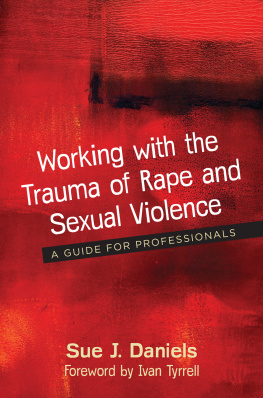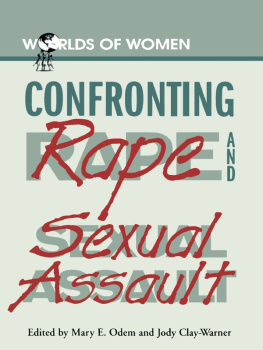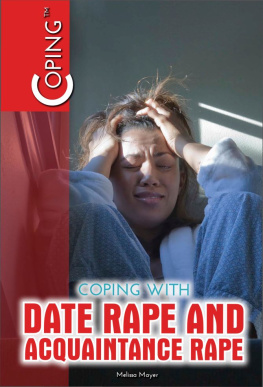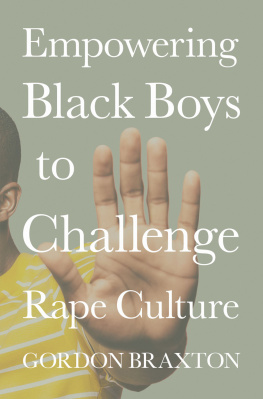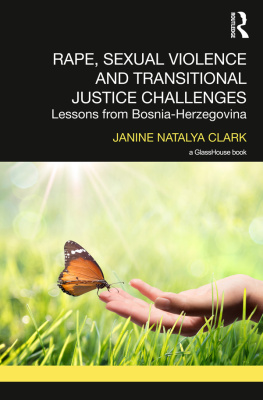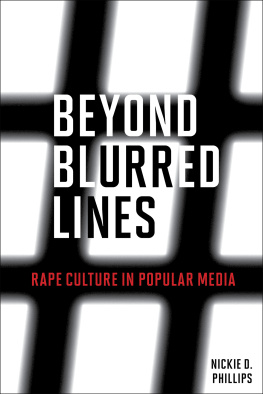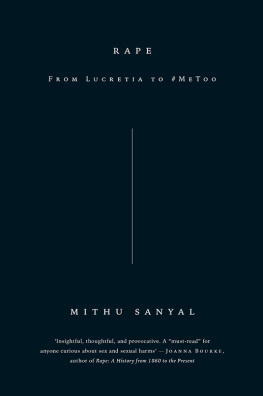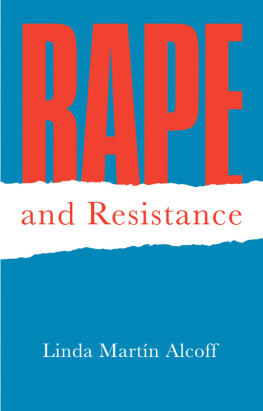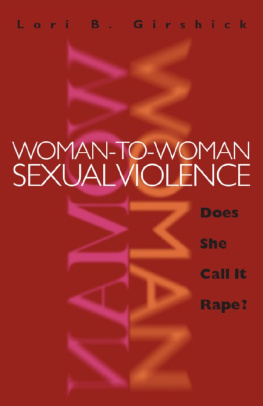Catherine O. Jacquet - The Injustices of Rape: How Activists Responded to Sexual Violence, 1950-1980
Here you can read online Catherine O. Jacquet - The Injustices of Rape: How Activists Responded to Sexual Violence, 1950-1980 full text of the book (entire story) in english for free. Download pdf and epub, get meaning, cover and reviews about this ebook. City: Chapel Hill, year: 2019, publisher: University of North Carolina Press, genre: Politics. Description of the work, (preface) as well as reviews are available. Best literature library LitArk.com created for fans of good reading and offers a wide selection of genres:
Romance novel
Science fiction
Adventure
Detective
Science
History
Home and family
Prose
Art
Politics
Computer
Non-fiction
Religion
Business
Children
Humor
Choose a favorite category and find really read worthwhile books. Enjoy immersion in the world of imagination, feel the emotions of the characters or learn something new for yourself, make an fascinating discovery.

- Book:The Injustices of Rape: How Activists Responded to Sexual Violence, 1950-1980
- Author:
- Publisher:University of North Carolina Press
- Genre:
- Year:2019
- City:Chapel Hill
- Rating:3 / 5
- Favourites:Add to favourites
- Your mark:
- 60
- 1
- 2
- 3
- 4
- 5
The Injustices of Rape: How Activists Responded to Sexual Violence, 1950-1980: summary, description and annotation
We offer to read an annotation, description, summary or preface (depends on what the author of the book "The Injustices of Rape: How Activists Responded to Sexual Violence, 1950-1980" wrote himself). If you haven't found the necessary information about the book — write in the comments, we will try to find it.
The Injustices of Rape: How Activists Responded to Sexual Violence, 1950-1980 — read online for free the complete book (whole text) full work
Below is the text of the book, divided by pages. System saving the place of the last page read, allows you to conveniently read the book "The Injustices of Rape: How Activists Responded to Sexual Violence, 1950-1980" online for free, without having to search again every time where you left off. Put a bookmark, and you can go to the page where you finished reading at any time.
Font size:
Interval:
Bookmark:
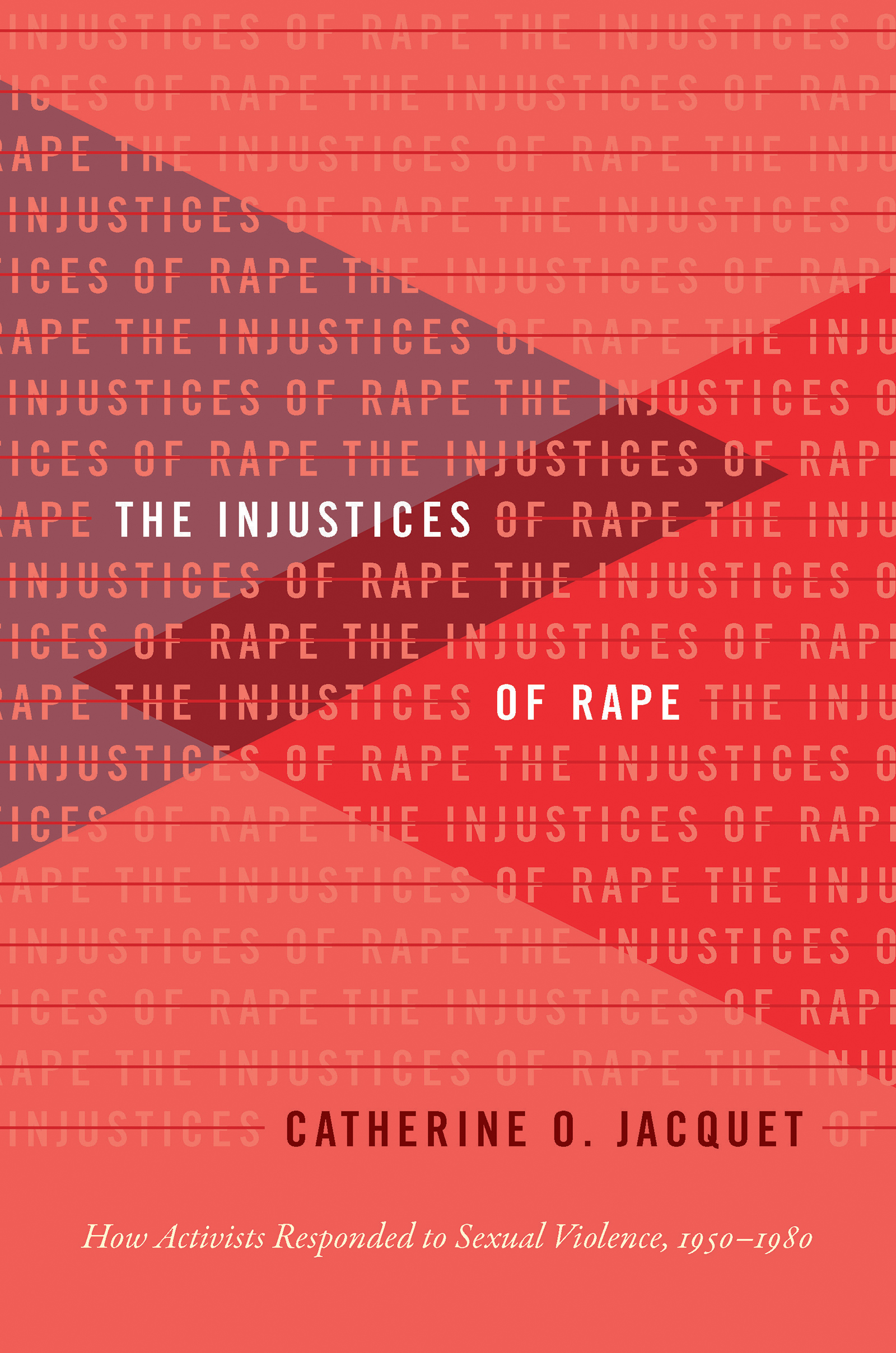
The Injustices of Rape
GENDER AND AMERICAN CULTURE
Coeditors
Thadious M. Davis
Mary Kelley
Editorial Advisory Board
Nancy Cott
Jane Sherron De Hart
John DEmilio
Linda K. Kerber
Annelise Orleck
Nell Irvin Painter
Janice Radway
Robert Reid-Pharr
Noliwe Rooks
Barbara Sicherman
Cheryl Wall
Emerita Board Members
Cathy N. Davidson
Sara Evans
Annette Kolodny
Wendy Martin
Guided by feminist and antiracist perspectives, this series examines the construction and influence of gender and sexuality within the full range of Americas cultures. Investigating in deep context the ways in which gender works with and against such markers as race, class, and region, the series presents outstanding interdisciplinary scholarship, including works in history, literary studies, religion, folklore, and the visual arts. In so doing, Gender and American Culture seeks to reveal how identity and community are shaped by gender and sexuality.
A complete list of books published in Gender and American Culture is available at www.uncpress.org.
CATHERINE O. JACQUET
The Injustices of Rape
How Activists Responded to Sexual Violence, 19501980
The University of North Carolina PressChapel Hill
2019 The University of North Carolina Press
All rights reserved
Set in Arno Pro by Westchester Publishing Services
Manufactured in the United States of America
The University of North Carolina Press has been a member of the Green Press Initiative since 2003.
Library of Congress Cataloging-in-Publication Data
Names: Jacquet, Catherine, author.
Title: The injustices of rape : how activists responded to sexual violence, 19501980 / Catherine O. Jacquet.
Other titles: Gender & American culture.
Description: Chapel Hill : University of North Carolina Press, [2019] | Series: Gender and American culture | Includes bibliographical references and index.
Identifiers: LCCN 2019011572 | ISBN 9781469653853 (cloth : alk. paper) | ISBN 9781469653860 (pbk : alk. paper) | ISBN 9781469653877 (ebook)
Subjects: LCSH: RapeLaw and legislationUnited StatesHistory 20th century. | Racism in criminologyUnited StatesHistory 20th century. | Human rights workersUnited StatesHistory20th century.
Classification: LCC HV6561 .J33 2019 | DDC 364.15/32097309045dc23 LC record available at https://lccn.loc.gov/2019011572
Portions of this book have been previously published in a different form. Chapter 2 includes material from The Giles-Johnson Case and the Changing Politics of Sexual Violence in the 1960s United States, Journal of Womens History 25, no. 3 (Fall 2013): 188211. Reprinted with permission by Johns Hopkins University Press. Chapters 3 and 4 include material from Fighting Back, Claiming Power: Feminist Rhetoric and the Resistance to Rape in the 1970s, Radical History Review 126 (October 2016): 7183. Copyright 2016 MARHO: The Radical Historians Organization, Inc. All rights reserved. Republished by permission of the copyright holder, and the present publisher, Duke University Press (http://www.dukeupress.edu)
For Susan Porter Benson
When I was a little kid I wanted to be a writer when I grew up. My family was very supportive. I was further encouraged by my elementary school teachers, especially my second grade teacher Peggy Jorgensen and my fifth grade teacher Ruth Lindegren. Little did I know, that I would become a writer of sorts later in my life as a professional historian. In high school I discovered the awesomeness of history, thanks to my sophomore year history teacher Michael Batcheller who assigned us Howard Zinns A Peoples History of the United States. Looking back, this class was my root to eventually pursue the path to becoming a professional historian. As an undergraduate at the University of Connecticut, I was privileged to work with Susan Porter Benson, Cornelia Dayton, and Jeffrey Ogbar. Their classes and mentoring all left a profound impression on me. I mention all of this here because in considering all of the threads that have brought me to where I am, it is these experiences and encounters of childhood and young adulthood that shaped who I would become later in lifea historian who shares her research through writing.
This book emerged out of both my evolving political consciousness and personal experience. Prior to graduate school I worked for two years at Simmons College. During this time I read the writings of second wave feminists, including Susan Brownmillers Against Our Will. I remember riding the bus to work and being furious at what I was learning. At this time I also began to develop a racial consciousness. I had been a fairly clueless white person prior to that, cloaked in my own white privilege. Through reading and attending lectures by scholars and activists like Barbara Smith, Leslie Feinberg, and Minnie Bruce Pratt during those years in Boston, I learned a lot about the world around me and my own positionality in it. When I arrived at graduate school at the University of Illinois at Chicago I was incredibly fortunate to learn from historians including Jennifer Brier, John DEmilio, Leon Fink, Sue Levine, and Katrin Schultheiss. It was also in that first year of graduate school that the reality of rape would come with full force into my life. Someone I loved was violently raped and it altered the course of my academic career. I turned to books to try and understand and process what had happened. I began reading about 1970s feminist antirape activism, and the seeds of this manuscript were planted. This book, then, is a testament to both my development as a professional historian and my political commitments to fighting against the devastation and pervasiveness of white supremacy and gender injustice.
I am incredibly grateful to friends, colleagues, and mentors who have supported me along the way. I would be completely lost without the support, wisdom, and friendship of so many people. During a post-doc at Macalester College, Lynn Hudson and Jane Rhodes took me under their wing. I cant thank them enough for their continued friendship, guidance, and hilarity over the years. At LSU, I elected Jonathan Earle, Leslie Tuttle, Aaron Sheehan-Dean, and Alecia Long as my local mentorsunbeknownst to themand they have always obliged. I am grateful to each of them for their support and their friendship. I may not have ever finished the manuscript if Aaron hadnt threatened to never invite me over for homemade shrimp and grits again if I didnt get it done. His strategy worked and I have since benefited from many shared meals with Aaron, Megan, Annie, and Liam. Aaron also read drafts and insisted that I knew what I was talking about, even when I wasnt so sure. I cannot thank him enough for everything he has done for me. I am incredibly fortunate to work with so many amazing colleagues in the history department at LSU. Chuck Shindo, Christine Kooi, and Maribel Dietz have been good friends and colleagues. The former junior faculty writing group read and gave feedback on several of the chapters included here. All my thanks to Zevi Guttfreund, Devon Benson, Steve Andes, Brendan Karch, Asiya Alam, Kodi Roberts, and Sherri Johnson for their thoughtful responses. Ive been lucky to find amazing community outside of the history department at LSU as well. I am deeply appreciative to Micha Rahder and Reagan Mitchell for all of their queer love and friendship. Likewise, Solimar Otero and Eric Mayer-Garcia have been the best kind of friends a girl could ask forthoughtful, passionate, and always ready to celebrate the goodness of life with a bottle of prosecco. This book would not have been possible without all of these peopleand so many morewho believed in the project and in me. I am particularly grateful to John DEmilio who, despite retiring, remains my forever advisor. John is not only a model of academic excellence but also a good and kind human being, plain and simple. Thank you, John, for modeling for me the kind of academic that I wanted to be. You continue to mentor and encourage me in so many ways, and I am truly grateful.
Font size:
Interval:
Bookmark:
Similar books «The Injustices of Rape: How Activists Responded to Sexual Violence, 1950-1980»
Look at similar books to The Injustices of Rape: How Activists Responded to Sexual Violence, 1950-1980. We have selected literature similar in name and meaning in the hope of providing readers with more options to find new, interesting, not yet read works.
Discussion, reviews of the book The Injustices of Rape: How Activists Responded to Sexual Violence, 1950-1980 and just readers' own opinions. Leave your comments, write what you think about the work, its meaning or the main characters. Specify what exactly you liked and what you didn't like, and why you think so.

